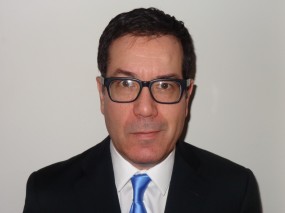
Joel Rosenthal,
JJL Process Corp.
Put yourself in the shoes for a moment of a large national creditor. You spend millions of dollars a year reimbursing your legal network firms for process serving expenses but you are completely blind as to HOW, WHAT, WHERE, WHEN and best of all WHO are the process servers. You know that the FTC looked at process serving in 2009 and this February the head of the CFPB’s Enforcement Department uttered the words “process serving” as an area of interest in his speech at the DBA conference. You realize that you have to establish compliance standards for process serving but you really do not know much about process serving as you do not have any direct relationships with collection industry process servers.
Back in 2011, we started to hear this exact story from a number of major national creditors – look at the credit cards in your wallet if you want to know which ones. They wanted to know more about process serving for the purpose of establishing some sort of guidelines for their legal networks to follow. The gist of the conversation was — “We don’t know where to start, please help!!”. After a number of these conversations, we realized that there was a need for developing process serving compliance standards for the collection industry.
In 2012, a group of nine people began working together toward this end. Their backgrounds were as collection attorneys, legal network executives, process server owners and compliance attorneys. The goal of this diverse group was to develop a preliminary set of process serving standards for the collection industry. After four or five drafts this was accomplished. The group of nine was the advisory board for the Process Serving Standards Summit.
The goal of the Summit was to have a fully transparent and inclusive process of reviewing, revising and finalizing the advisory board’s draft document. Creditors, debt buyers, legal networks, collection law firms, compliance attorneys, process servers, trade associations and even a county judge participated in the Process Serving Standards Summit held in mid-2012 in Denver. The two-day Summit made numerous and significant revisions to the draft standards and each individual standard was democratically voted on by the participating organizations. In the spirit of inclusion, the Summit participants overwhelmingly directed that the standards be publicized in a comment period allowing for further revisions. Comments were received and several more revisions made to the standards by the advisory board.
If you recall in my first blog posting last month I mentioned that there are process serving companies that embrace technology and those that fight it. Likewise, there are organizations that embrace process serving compliance for the collection industry and those who fight it. The foremost opponents appear to be most of the process serving companies themselves. They are championed by the National Association of Professional Process Servers (NAPPS) and its various state affiliates. NAPPS members are predominantly “mom and pop” firms who prefer working on a “trust” basis. As much as I recall, appreciate, and would prefer the bygone days of old-fashioned trust, that approach does not work anymore in the litigious compliance-oriented world we now live in. When the president of JJL Process, Scott Levine, personally invited the NAPPS president to participate in the Summit and standards process last year, the response was non-participation and the answer “the collection industry has its own problems let them drive their own bus.”
Regardless, the collection industry now has a set of process serving standards as a roadmap to answering HOW, WHAT, WHERE, WHEN and WHO. It is my strong hope that these standards become implemented throughout the industry. To view the standards: http://processservingstandards.com/Process_Serving_Standard.html




![Joel Rosenthal [Image by creator from ]](/media/images/Joel_Rosenthal.2e16d0ba.fill-500x500.jpg)
![the word regulation in a stylized dictionary [Image by creator from ]](/media/images/Credit_Report_Disputes.max-80x80.png)
![Cover image for New Agent Onboarding Manuals resource [Image by creator from insideARM]](/media/images/New_Agent_Onboarding_Manuals.max-80x80_3iYA1XV.png)


![Report cover reads One Conversation Multiple Channels AI-powered Multichannel Outreach from Skit.ai [Image by creator from ]](/media/images/Skit.ai_Landing_Page__Whitepaper_.max-80x80.png)
![Report cover reads Bad Debt Rising New ebook Finvi [Image by creator from ]](/media/images/Finvi_Bad_Debt_Rising_WP.max-80x80.png)
![Report cover reads Seizing the Opportunity in Uncertain Times: The Third-Party Collections Industry in 2023 by TransUnion, prepared by datos insights [Image by creator from ]](/media/images/TU_Survey_Report_12-23_Cover.max-80x80.png)
![[Image by creator from ]](/media/images/Skit_Banner_.max-80x80.jpg)
![Whitepaper cover reads: Navigating Collections Licensing: How to Reduce Financial, Legal, and Regulatory Exposure w/ Cornerstone company logo [Image by creator from ]](/media/images/Navigating_Collections_Licensing_How_to_Reduce.max-80x80.png)
![Whitepaper cover text reads: A New Kind of Collections Strategy: Empowering Lenders Amid a Shifting Economic Landscape [Image by creator from ]](/media/images/January_White_Paper_Cover_7-23.max-80x80.png)